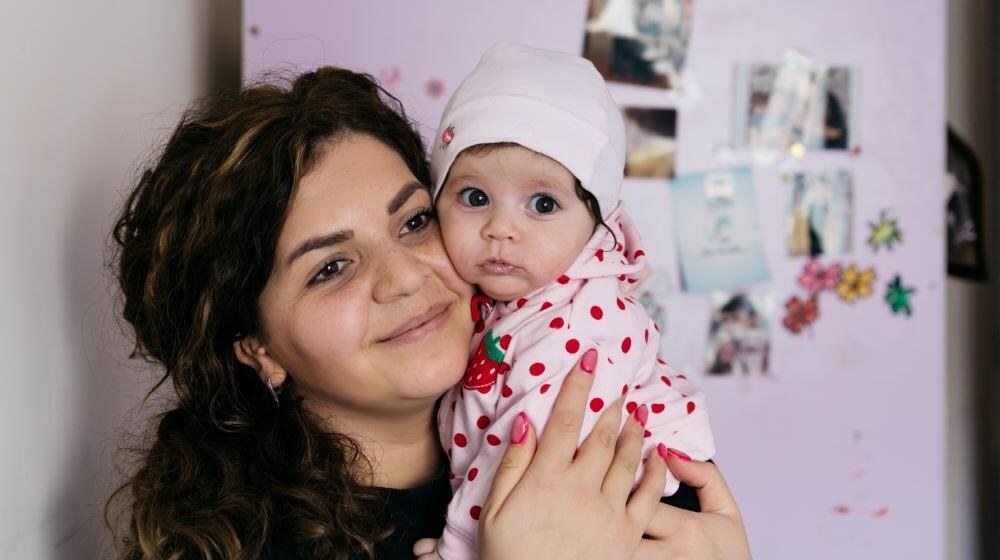"The most valuable treasure we brought from Artsakh is our Gabriella," Mari says with a smile, gesturing to her little one in the arms of her mother-in-law. "Spending the day with the children helps to ease the mind from problems, letting the day pass by. But the nights are the hardest, with thoughts constantly on Stepanakert, our home in Karabagh... it's tough to make the night pass."
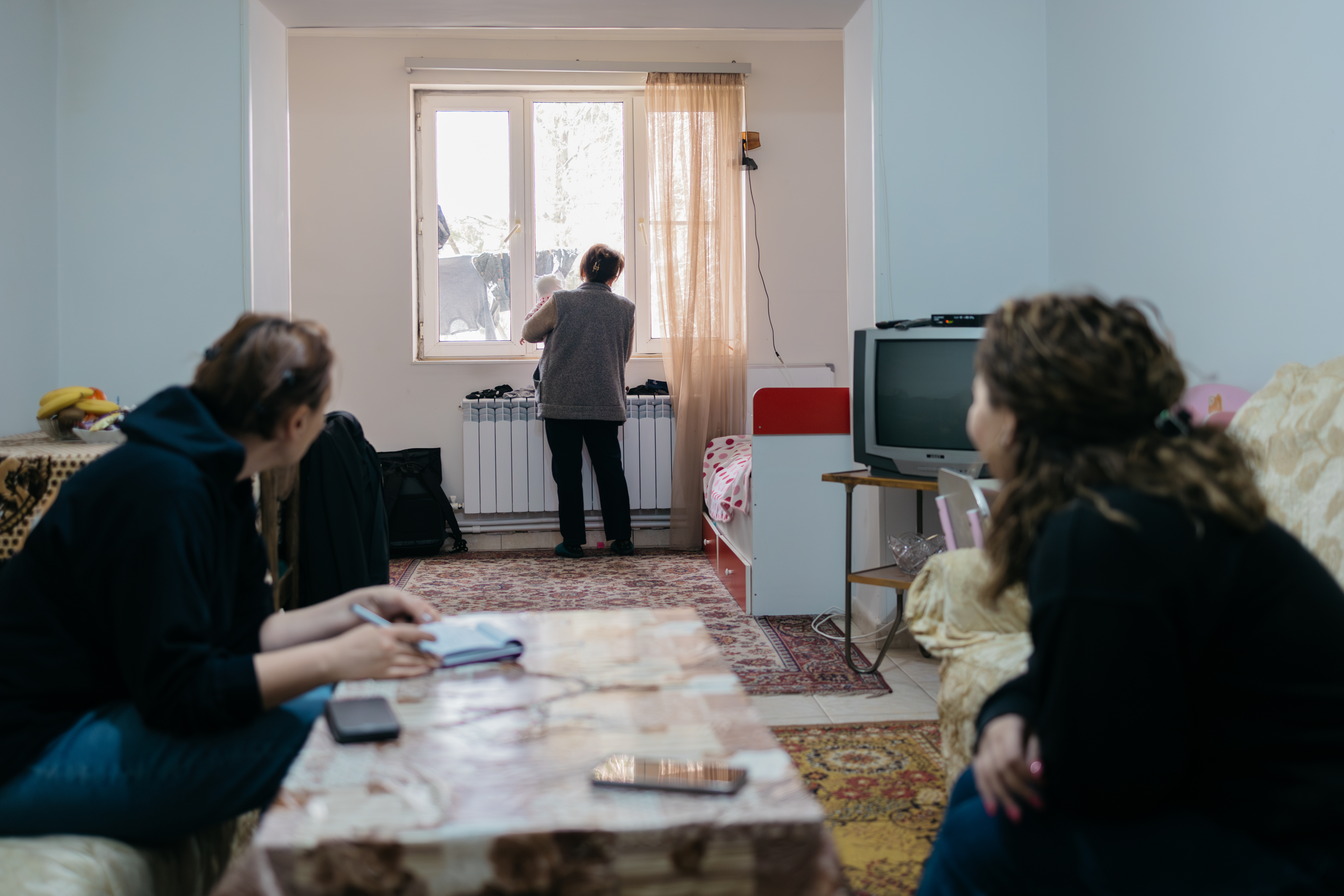
Our conversation with 25-year-old Mari Kalashyan, forcibly displaced from Nagorno Karabakh, began in their newly rented apartment in Abovyan city, close to the capital of Armenia. We had met previously in October 2023, shortly after their arrival in Goris, where she, then pregnant, and her family had found refuge in a temporary shelter - a Safe Space, run by Winnet Armenia with funding from UNFPA.
"We were welcomed very warmly here, and everything we needed was provided. But since my child was about to be born, we wanted a separate house to make it easier to live and raise the baby," says Mari.
Mari's journey was long, from Stepanakert to Goris, then to Vanadzor (the 3rd largest city of Armenia), where she gave birth to Gabriella on October 24, 2023, giving the girl the name Gabriella, fulfilling her sons' wish. Though the delivery passed normally, Gabriella is very weak and often has health issues. "The doctors say her weak condition stems from the lack of proper nutrition during my pregnancy in Artsakh. She's been sick often; recently, we were in the Arabkir hospital, where they put her on artificial respiration, but thank God, she got better. Now all my children are taking vitamins. Even now we are facing the consequences of the nine-month blockade," Mari explains, recalling the memories when the only corridor uniting Armenia with Nagorno Karabakh was closed and the difficulties they faced while moving to Armenia.
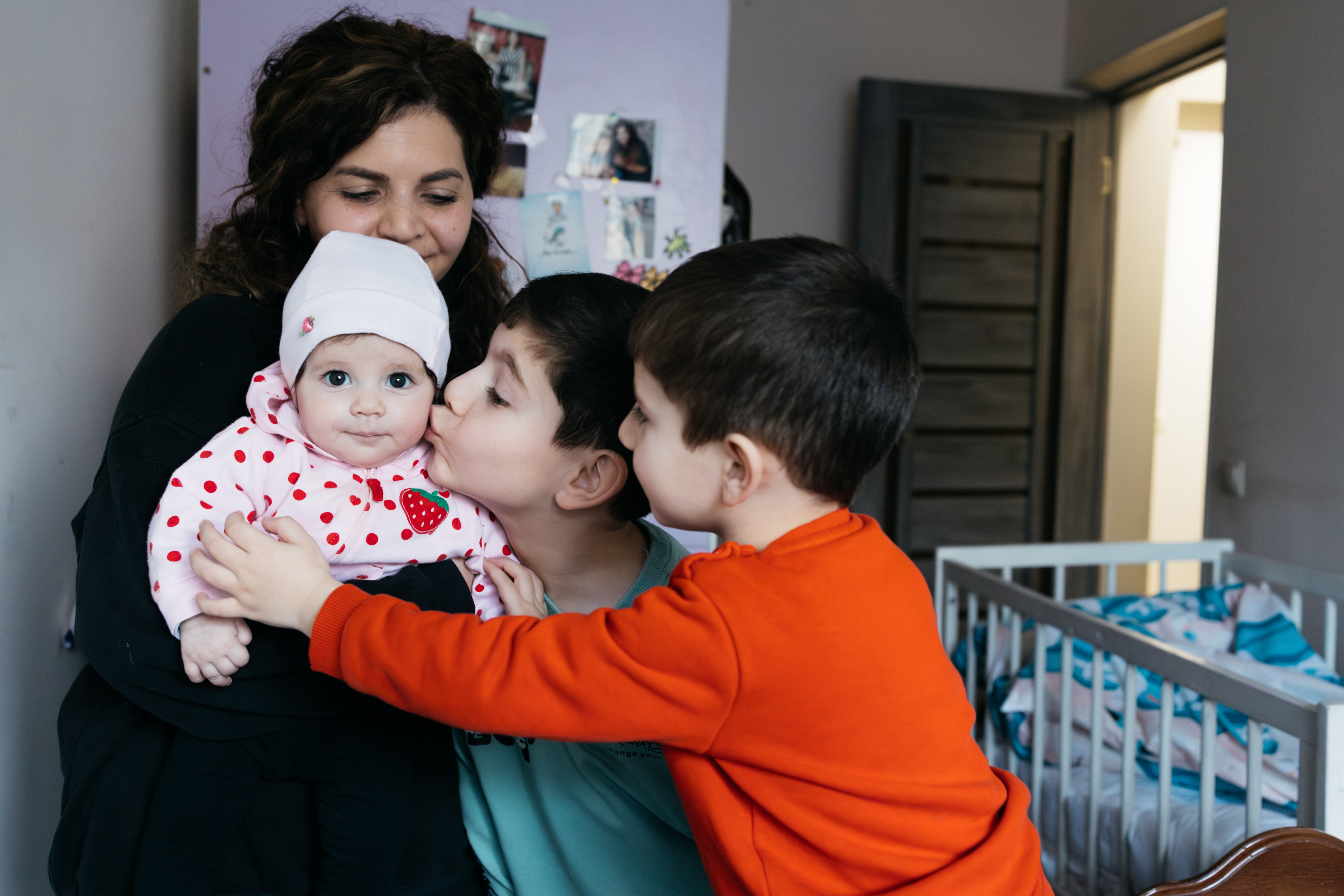
"I will never forget those days… also the gasoline tank explosion where my uncle died… how we divided tea with a tiny bit of sugar in it into several portions so that the children could at least have something sweet... the boiled potatoes that we kept for children to eat on the way, and how they got spoiled... we didn't have anything to eat for two days until we reached Goris," she recalls.
It has already been two months since Mari moved to Abovyan with her husband, three children, mother-in-law, and sister-in-law. The large family settled in a one-bedroom house. At the moment, only her sister-in-law has a job, working in the hospital as a nurse, and the only way to pay the rent and utilities is through state support. "The rent is very high; we pay two hundred thousand drams (around 500 USD) every month for this empty house, and if the help provided by the state ends one day, I don't know what we will do. We didn't bring anything with us, leaving behind two houses with everything, equipment, and furniture… what you see here was either donated by kind people, or we tried to buy it from the secondary market..."
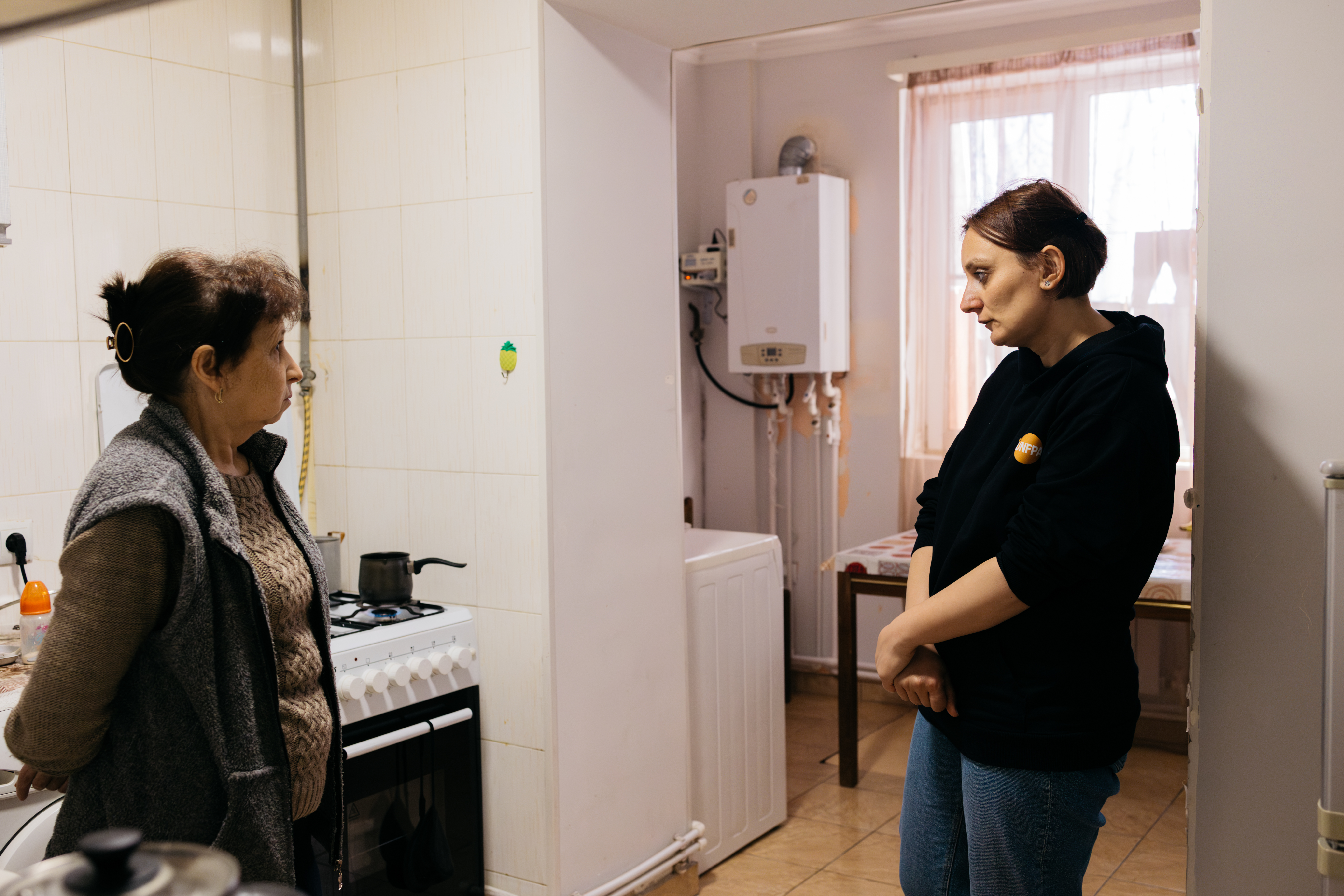
Mari's husband had left his driver's license in Nagorno Karabakh. "Now my husband is taking a driving test to restore his license. We have a car; maybe he will drive a taxi to earn money."
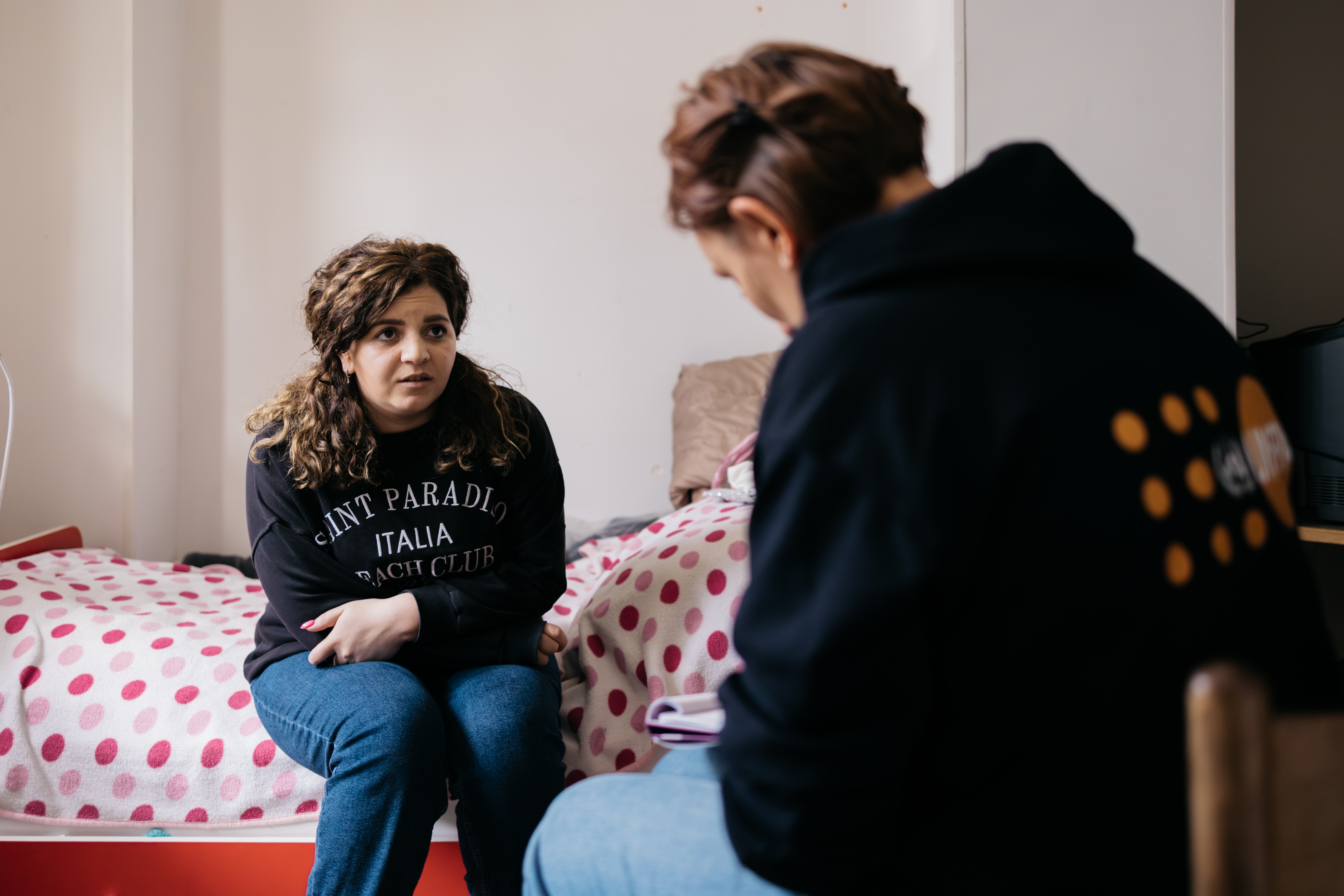
Mari says that the children are adapting little by little to the new place.
"We were lucky that in my eldest son's class, there is a boy from Artsakh with whom he studied in the same class. Thanks to that boy, he started to go to school with great love; he got used to this new place very quickly. The school personnel, teachers, welcomed us very warmly; they are very attentive to us, and my youngest son also goes to kindergarten," says Mari.
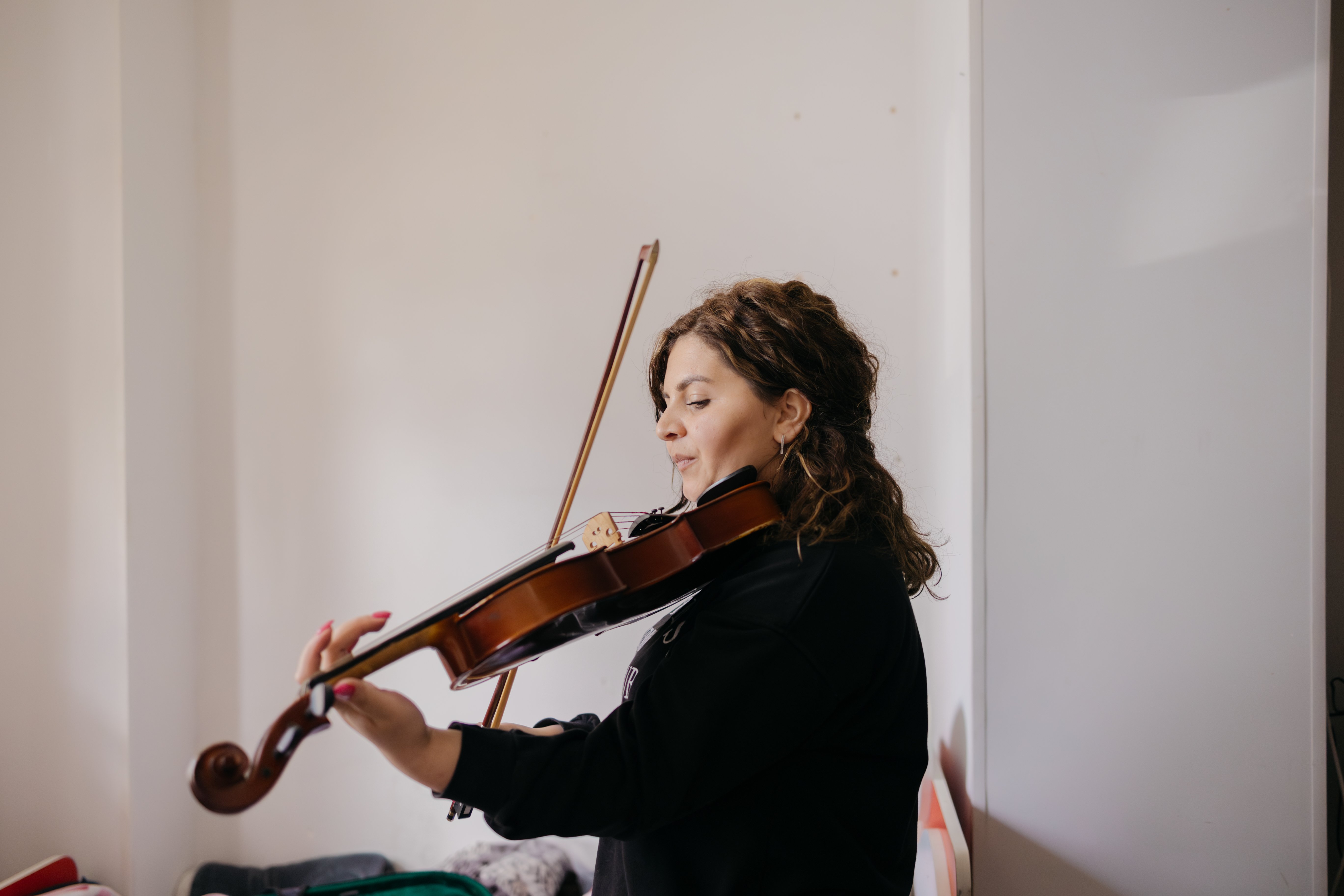
The plans for the future are very uncertain, though. "If we manage to have our own house here, a main place to live, we will stay here and will raise our children. When Gabi gets a little older, I'll work too...", Mari says, and takes down from a wardrobe her carefully kept viola, in a slightly dusty case; she has been playing it since she was five years old.
Mari was one of the musicians of the Chamber Orchestra in Nagorno Karabakh. "My mother brought my viola with her from Artsakh. I tell everyone that it's my first child, and my eldest son becomes jealous (smiles)... It's a little damaged now, but we have a specialist here, and he'll fix it. Playing is my passion, also the means to earn a living. But now I am not ready to play, I don't even want to play; I don't even like music at home now… but one day I will definitely start playing again."

